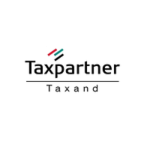The OECD/G20 Inclusive Framework on BEPS (IF) has agreed on October 8 2021 to the Statement on a Two-Pillar Solution to Address the Tax Challenges Arising from the Digitalisation of the Economy. This solution comprises pillar one and pillar two.
The focus of this article lies on selected aspects of pillar two and its impacts in Switzerland. Pillar two aims to ensure that multinational enterprises (MNEs) pay a minimum level of tax by introducing a global minimum corporate income tax rate of 15% as well as a new global corporate income tax base. These so-called global anti-base erosion rules (GloBE rules) shall apply to MNEs with an annual consolidated turnover of €750 million (or equivalent) or more.
Pillar two also includes a treaty-based subject to tax rule (STTR) according to which certain cross boarder royalty and interest payments between related parties can be taxed by the source jurisdiction provided those payments are not taxed by the recipient jurisdiction at a rate of at least 9%. The STTR is not addressed in this article.
Overview mechanics of the GloBE rules
The GloBE rules consist of two interdependent rules: the (i) income inclusion rule (IIR) and the (ii) undertaxed payments rule (UTPR).
The IIR as the primary rule imposes a top-up tax at the level of the ultimate parent entity (UPE) with regard to income of its directly or indirectly held group entities in other jurisdictions that, determined on a jurisdictional basis, are not taxed at an effective tax rate of at least 15%.
In case the jurisdiction of the UPE has not implemented the GloBE rules in its domestic tax law, the jurisdiction of the next intermediate parent entity down the ownership chain may charge the top-up tax with regard to its undertaxed subsidiaries.
The UTPR is designed as a fallback solution in case undertaxed income of a jurisdiction is not captured by an IIR and reallocates the top-up tax on such undertaxed income to other jurisdictions in which members of the MNE are located. It does so using a two-factor allocation key based on (i) the book value of tangible assets and (ii) the number of employees employed in a UTPR top-up tax recipient jurisdiction.
In order to determine the effective tax rate of a jurisdiction, the GloBE rules operate by using an effective tax rate test according to which recognised taxes accrued for in a jurisdiction (adjusted covered taxes) are put in relation to a specific GloBE tax base (GloBE income or loss) of all entities in that jurisdiction (jurisdictional blending).
The starting point for computing the adjusted covered taxes and the GloBE income or loss is the MNE’s financial accounts based on a recognised international accounting standard (e.g. IFRS, US GAAP and Swiss GAAP FER) after specific GloBE adjustments (with regard to computing the GloBE income or loss: e.g. excluding net tax expense, certain dividends and gains/losses from equity shareholdings and excluding certain expenditures such as illegal payments and fines).
OECD sets forth a tight implementation timeline
The timeline set by the OECD for implementing the GloBE rules is very ambitious.
On December 20 2021, the OECD released the model rules, which are designed as a template for jurisdictions to adopt the GloBE rules into their domestic law. This release will soon be followed by the publication of the accompanying commentary, which will provide guidance on the interpretation of the model rules.
Further, the work on the Implementation Framework that will facilitate the coordination and administration of the GloBE rules shall be finalised by the end of 2022. The aim of the OECD is that jurisdictions will apply the GloBE rules to their MNEs already by 2023 with the UTPR becoming effective on January 1 2024. This of course will depend on how quickly the jurisdictions concerned will actually implement the new rules into their domestic law.
The EU among the first to adopt the new minimum taxation rules
On December 22 2021, shortly after the OECD released the model rules, the European Commission proposed a directive containing rules to ensure a minimum taxation level for large groups operating in the EU.
These rules are generally consistent with the OECD model rules, except for certain adjustments that are necessary to ensure compliance with EU law. For example, the directive also includes pure domestic groups to adhere to the GloBE rules, while the OECD model rules are limited to multinational groups. This deviation from the OECD model rules is necessary to comply with the EU’s fundamental freedoms.
Provided that all 27 member states unanimously agree to the new rules, they shall come into effect on January 1 2023, with the UTPR coming into effect on January 1 2024.
How and when will the GloBE rules be implemented in Switzerland?
Switzerland belongs to the 137 (of 141) IF member jurisdictions that support the OECD GloBE rules, and the Swiss Federal Council decided at its meeting on January 12 2022 to implement the new rules in Switzerland.
The introduction of the GloBE rules in Switzerland is necessary to maintain legal certainty for the MNEs concerned and to possibly limit their compliance burden in other jurisdictions. Further, domestic fiscal interests need to be considered and by levying potential additional tax revenue in Switzerland due to a minimum tax rate, collection of these revenues by other jurisdictions can be avoided.
The ordinary legislative process in Switzerland can take up to several years, and in order to adhere to the ambitious timeline set forth by the OECD, the legal basis for implementing the GloBE rules in Switzerland shall be created by amending the Federal Constitution. This will legitimise the unequal treatment of the MNEs concerned compared with other Swiss groups not affected by the GloBE rules.
|
|
“Provided that all 27 member states unanimously agree to the new rules, they shall come into effect on January 1 2023, with the UTPR coming into effect on January 1 2024.” |
|
|
Further, the amendment of the Federal Constitution shall include a transitional provision that will empower the Federal Council to introduce the GloBE rules based on a temporary ordinance until a proper law can be enacted.
Public consultation is expected to begin in March 2022 with a shortened consultation period, and the draft law shall be submitted to the Federal Parliament in June 2022, followed by parliamentary debate until December 2022.
A necessary public vote on the amendment of the Constitution is expected to take place in June 2023. The aim is to have the temporary ordinance to come into force on January 1 2024. Subsequently, a new tax code can be designed and run through the ordinary legislative process without time pressure.
It is expected that the temporary ordinance will not directly impact the existing corporate income tax rules in Switzerland. The new rules shall foresee that Swiss entities of multinational groups with annual revenues of at least €750 million (or equivalent) may be subject to an additional Swiss taxation if:
The combined tax rate of all Swiss entities of a group is below 15% (domestic minimum top-up tax); or
The combined tax rate of all foreign directly or indirectly held subsidiaries (downstream perspective) in a jurisdiction is below 15% and considering a specific rule order such foreign low-taxed income is not captured under the IIR of another jurisdiction in which an intermediate holding or the ultimate parent of the group is domiciled (Swiss IIR top-up tax); or
The combined tax rate of other foreign group members (up- and sidestream perspective) in a jurisdiction is below 15% and if such foreign low-taxed income is not captured by an IIR in another jurisdiction.
The Swiss top-up tax will be levied and collected by the cantons, and such tax revenues will be taken into account for intercantonal financial equalisation purposes.
What are the impacts of the GloBE rules in Switzerland?
Impact on Switzerland as an attractive business location
The GloBE rules as a landmark reform will definitely have an impact on Switzerland’s attractiveness as a business location.
It is expected that the group tax rate of certain MNEs will increase and, considering the already rather high employee and infrastructure costs, the new rules could lead to corporate reorganisations. However, the cantons are currently analysing how to use the possible additional tax revenues they expect to receive from the additional Swiss top-up tax, and it can be expected that they will take non-fiscal measures (e.g. granting social security credits or research and development (R&D) benefits, facilitating start-up financing or increasing funding for universities) in order to maintain and even improve their attractiveness for businesses.
Impact on specific Swiss tax incentives
Tax incentives in Switzerland introduced by the corporate tax reform in 2020 (such as the patent box, R&D super-deduction and capital tax base deduction) will lead to a lower GloBE adjusted covered tax (capital tax is also considered as covered tax) but do not, generally spoken, lead to a reduction of the GloBE income. As a consequence, such tax incentives may press the Swiss GloBE effective tax rate below the 15% threshold and therefore lead to a Swiss top-up tax charge – meaning that such tax incentives may not be efficient anymore in the future under certain circumstances.
In connection with the abolishment of certain privileged tax regimes as per January 1 2020, hidden reserves and goodwill that were laid open upon the change of tax status could either be (i) tax-effectively depreciated during a certain time period (goodwill depreciation method) or (ii) taxed at a reduced rate (special tax rate method). Both methods lead to a reduced current income tax expense and thus possibly to a Swiss GloBE effective tax rate below the 15% threshold.
With regard to the goodwill depreciation method it will be interesting to see whether the deferred tax expense linked to the depreciation of the deferred tax asset that was recognised in the financial accounts upon the change of tax status will be considered as an adjusted covered tax. The inclusion of such deferred tax expense in the adjusted covered taxes would lead to an increased Swiss GloBE effective tax rate and thus be tax efficient under the GloBE rules.
Implementation timing gap between Switzerland and foreign jurisdictions
As the GloBE rules will be implemented in Switzerland in 2024 at the earliest, whereas it currently is expected that the EU member states and possibly other jurisdictions may start applying the GloBE rules already by 2023, an implementation timing gap may arise in Switzerland.
This timing gap can lead to the situation that, in 2023, undertaxed income of Swiss subsidiaries of foreign MNEs may possibly be taxed under the IIR by foreign jurisdictions in which immediate or ultimate parent entities of the Swiss MNEs are located. Affected Swiss subsidiaries of foreign MNEs should therefore carefully analyse this issue. In order to avoid higher top-up taxation abroad, they should consider refraining from using tax incentives in 2023 or evaluate the applicability of tax provisions of certain cantons according to which, under certain conditions, additional cantonal taxes need to be paid. In this respect it is currently being discussed whether to implement the GloBE rules for Swiss subsidiaries of foreign MNEs retroactively already as per January 1 2023.
Since the UTPR is not expected to be implemented by other jurisdictions before 2024, undertaxed income of Swiss-headquartered MNEs cannot be taxed by other jurisdictions in 2023.
Click here to read the 2022 Switzerland Special Focus guide
Dr Alberto Lissi |
|
|---|---|

|
Partner Tax Partner AG - Taxand Switzerland T: +41 44 215 77 06 E: alberto.lissi@taxpartner.ch Dr Alberto Lissi is an attorney at law and a certified tax expert with a PhD in international taxation. He has gained extensive experience over the last 25 years as an advisor for national and international taxation. Since 2012 Alberto has been a partner at Tax Partner AG. His broad experience covers national and international tax planning and reorganisations as well as all tax aspects in the banking and financial sectors. Alberto is a frequent speaker and lecturer at selected important Swiss tax seminars and post graduate master studies and has published various articles on international and national tax law. |
Tom Lawson |
|
|---|---|

|
Senior advisor Tax Partner AG - Taxand Switzerland T: +41 44 215 77 51 Tom Lawson is a senior advisor at Tax Partner AG in their Zurich office. Tom has more than 15 years of experience in local and international tax. He started his career as an accountant in a global accounting firm before joining Tax Partner in 2012. Besides national and international corporate tax law, Tom’s activities are also focused on real estate tax matters and taxation of collective investment schemes. He teaches tax law at various programmes for bankers and fund officers. |
Tax Partner AG |
|
|---|---|
Tax Partner is a leading tax firm in Switzerland. With a team of approximately 45 professionals, the firm advises multinational and national corporate clients as well as individuals in all tax areas. In 2005, Tax Partner co-founded Taxand – the first global network, with more than 550 tax partners and over 2,500 tax advisers from independent member firms in 50 countries. |
|













